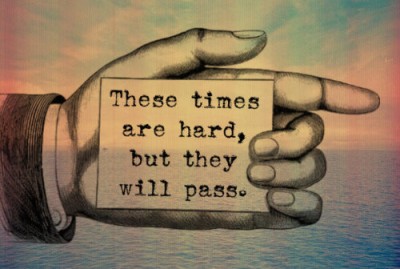“Gratitude heals, energises and transforms lives.” These are the words of Dr Robert Emmons, a professor of psychology and considered one of the world’s leading scientific experts in gratitude. In his book Thanks! How the new science of gratitude can make you happier, Emmons discusses the findings of his initial research into gratitude.
For his study, Emmons separated his research subjects into three groups and asked them all to keep a journal, in which they wrote once a week for ten weeks. The first group was asked to record five things they were grateful for. The next group were required to record five hassles they were experiencing, events that irritated them, and the third group, to record five neutral events that had taken place in the week.
According to the scale the research used to quantify wellbeing, the group that focused on events they felt grateful for, were 25% happier by the end of the study, than the other two groups. Twenty Five percent!
This significant happiness boost was the result of psychological, physical and social changes that occurred in the lives of the grateful cohort due to keeping a gratitude journal. From a psychological point of view, the grateful participants reported feeling more alert, alive, awake, energetic, enthused and attentive. Essentially, they became more present and energised to the moment they were in.
From a physical perspective the grateful participants reported they were exercising more, taking better care of themselves, experiencing less symptoms and getting more sleep. Importantly this sleep was considered more restorative, which also helped increased feelings of alertness and attentiveness.
From the social perspective the grateful participants felt more connected to others and less isolated, which in turn had a relationship strengthening effect and the sense that they were being supported by others. Given humans are social animals, it would be hard to overestimate the value of such outcomes.
One of the remarkable findings of Emmons’ research was that the participants, who practiced gratitude in a journal, were so buoyed by their positive response they continued to keep the journal, and in follow up six months later were still reporting the same benefits.
But what of people whose lives hold significant challenges, such as illness, where it would arguably be harder to attain these elevated states? When Emmons replicated the study, he chose subjects with significant medical challenges, all with neuro-muscular disease. Amazingly the results were the same. Participants who were assigned to record moments of gratitude in their journals all experienced greater optimism and felt more connected to others. But they also received the physical benefits too: improved sleep and more energy throughout the day.
Looking to explain these positive results, Emmons believes there are a couple of things going on: firstly, happiness. Being grateful and focussing on the positive can quite simply make you happy, allowing for better sleep and more engagement with those around you. Plus, happiness feeds on itself, allowing even more happiness to follow, “happiness makes good things happen”, says Emmons.
But gratitude is not the same as happiness and this is where Emmons points to the more complex nature of gratitude, which in turn suggests its benefits can be profound.
Happiness is often dependent on things going well in our lives, and is generally centred around oneself. Gratitude however, long considered a virtue, similar to humility and grace, is notable for taking us outside ourselves and this, Emmons demonstrates, is why gratitude can bring truly great benefits. It is not just about ourselves and our own happiness, but about connection to others. The kind of connectivity that provides for the most fundamental of human needs, to belong.
Emmons believes that true gratitude requires in basic terms a gift giver, a recipient, and an acknowledgement of the gift. This is a process of strengthening social ties and building community. But it also points to the difficulties we have in practicing gratitude and giving thanks. For some gratitude and thankfulness can seem like a demand and even feel threatening. He cites a study showing that American men are less grateful in general than their German counterparts. “Gratitude presupposes so many judgements about debt and dependency that it is easy to see why, supposedly self-reliant, American males would feel queasy even discussing it.” Emmons suggests.
And that there is the rub: humans are necessarily interdependent, our connection to one another vital to our wellbeing. This then makes gratitude not just an easy way to lift our mood, but a necessity for our own wellbeing and that of our community.
So, with all that in mind, how does one cultivate gratitude?
Some people are naturally grateful, naturally thankful and just generally more positive in nature. But these are qualities anyone can achieve with practise, so that the rewards, such as an elevated mood and strengthened relationships, can flow. Here are some suggestions to get you going:
The most popular way to do this, is by way of a gratitude journal, writing 3-5 things each day that you are grateful for. The more this is done, the better you will get at noticing little things during the day that are worth being thankful for. A kind comment from a colleague, a smile from a stranger, a small flower growing through the crack of concrete. This level of attention throughout the day will not just elevate you, on reflection, when recorded in the journal, but at the time of noticing. Happy moments throughout the day will result, (see the story of Lucy and her gratitude journal here).
Another way of being present to moments of gratitude as they occur, is to notice and write the moment out on a small piece of paper when it happens. Savour it as you do so, and then pop it into a Gratitude Jar on your desk or on the kitchen bench. Having a tough day? Empty the jar out and re-read the notes, recalling the smile that moment gave you.
A powerful way to bring a deep sense of gratitude and thankfulness into your life and that of someone else, is to sit down and write them a letter, expressing gratitude for their role in your life or something specific they did for you in the past, such as provide a shoulder to cry on during a difficult time. This is especially powerful in that you are ostensibly talking to someone you are grateful to in your mind, working at expressing the ways in which you feel grateful, thus you will feel that gratitude then and there, in its fullness. This works even without sending the letter, though of course sharing the gratitude can be a wonderful thing too.
Take a walk in nature, without any other purpose than to experience the wonder of it. Many people arrange their lives around time spent outdoors, taking regular hikes, for the sense of peace, wonder and gratitude they receive at being surrounded by something bigger than themselves.
Prayer or meditation. Meditation that quietens the mind and the associated anxieties, worries and depression, leaves a space for quieter contemplation and allows gratitude to make itself known. The same for prayer, where gratitude is made a focus.
Practice gratitude through acts of kindness. Remember the kind deed done for you, or a friendly word from a stranger? Pay it forward and be grateful for the opportunity to do so.
The last word here goes to Jane Ransom, from the American Brain Foundation, who speaks so evocatively in her Ted talk on gratitude and how to make your gratitude practice work for you: don’t just think about what you’re grateful for, Jane says, feel it.
So, don’t waste any more time. Get out there and feel all there is to be grateful for!
































